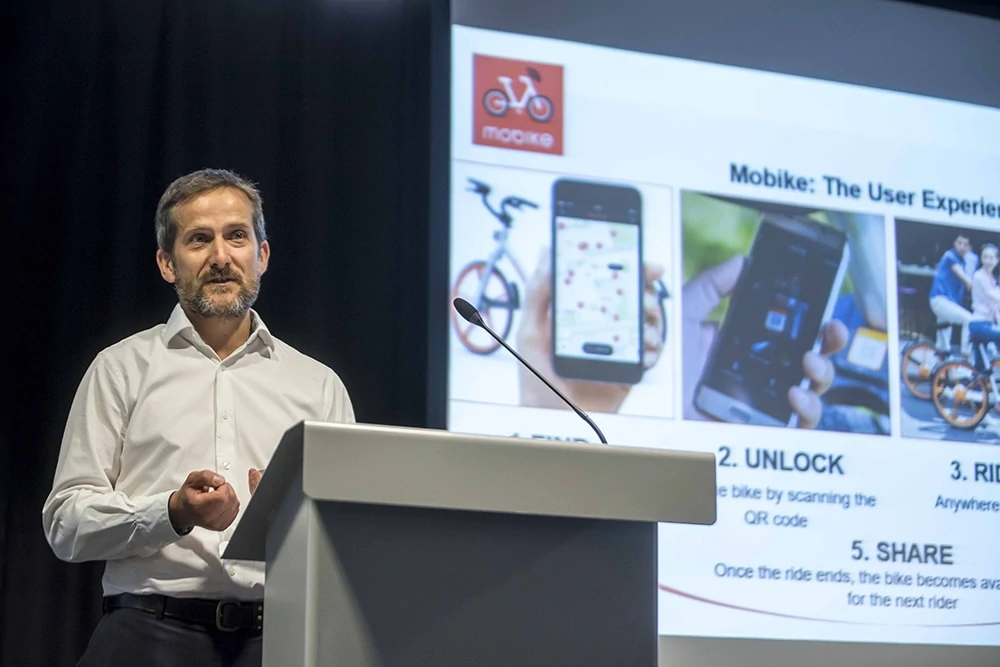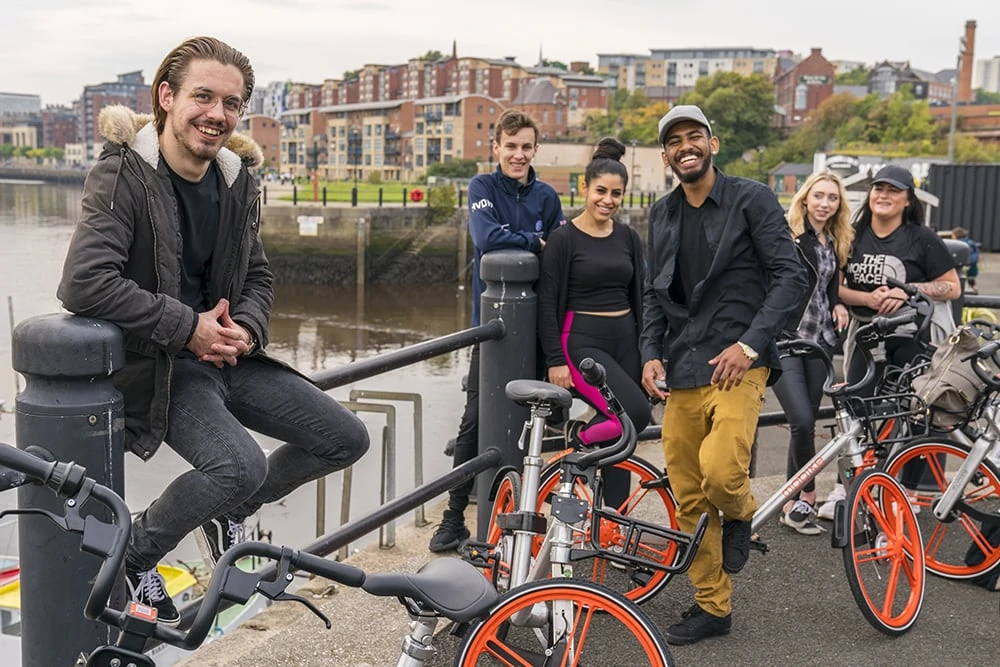The Chinese bike-sharing company Mobike launches in the UK
I spent seven years working at the London Cycle Hire Scheme or the Boris bike as people know it as. First as the service improvement manager, then solutions manager. I started working with them in 2010 before it was launched and continued up until earlier this year.
I was bitten by the bike share bug as I could see the massive potential of it, so I got in touch with Mobike and said: this is how I can help you. They already had been looking at expanding into the UK and had been in touch with Greater Manchester city.
Manchester is a great city. It has good train links, direct flights to Beijing and a strong, established Chinese community. Plus, it is innovative and forward thinking. Manchester doesn’t have a bike share scheme but they have been doing research into it for four or five years. The council members and the public agreed that this was something they needed but they didn’t know how to fund it. Enter Mobike who said we can do this and it won’t cost you a penny. Three months later, we have a thousand bikes operating in the city.

Steve Pyer, UK general manager at Mobike explains expansion into the UK
We launched on the 12th of September in Ealing, north London and we announced on the 25th of September that we are launching in Newcastle as well. We hire city managers in each area who know the cities and can work with local councils.
We would get nine users per bike per day on average, which is great
Mobikes are dockless, so we don’t need to create expensive docks like in London. [LINK TO MAIN FEATURE] We simply vinyl off an area, mark it on the app, and deploy the bikes. If we don’t like the location, we can move it quickly and it doesn’t cost us anything but a strip of vinyl and some man hours.
Mobike has established a UK entity, with the same directors as in China. Weiwei Hu, the founder and president of Mobike, comes from an automotive background. She launched the company because she wanted to bring the fun back into biking and wanted a way to cut down on the environmental impact that cars have. She came up with the technology and just did it. Everyone can ride a bike and it appeals to everyone’s inner child. Like the saying goes, “it’s like riding a bike, you never forget”. It is something that is accessible and affordable to everyone, solves the transport issues that every urban centre faces, and is a positive influence on personal health and the environment.
Weiwei is very hands on. She has grown Mobike from zero to this is impressive international company and for her to hand over her baby to someone like me is quite daunting. I went to Beijing for my final interview and met the team and she is remarkably down to earth. It’s been a really rewarding experience.
Mobile payments in China have really taken on. You can pay for everything on WeChat. China has gone from being a copier of things to now an innovator of things. Although scanning a QR code isn’t that natural to many people in a place like Manchester, people have taken to it. They have just embraced it and used it. The more products that use these types of simple, intuitive services, the more it will catch on.
We measure our success on a number of different KPIs. But the obvious one is the average number of journeys per day per bike and at the moment we are averaging five journeys per day, per bike. When we launched, on a nice day, we would get nine users per bike per day on average, which is great.
The City Council have been very welcoming and putting us in touch with the advocate people. We did a cycle tour of Manchester last weekend and had everyone from students to councillors. We were learning facts about Manchester, which even I had never heard. We have an exciting collaboration with British Cycling that aims to get two million people on Mobikes by 2020 and we have plans to launch in 15 cities in the UK over the next 12 months.
There have been some challenges in China with oversupply of bikes but we have been in Manchester for three months and haven’t seen a pile of bikes outside Piccadilly Station. Cities such as Shanghai are now regulating the bike sharing market a lot more but Britain is a bit more mature when it comes to regulations. TfL have already issued their regulations on this and we work closely with local councils to find out what events are happening to ensure we can manage the supply and location of bikes. The biggest challenge we have had has been one of acceptance – the fear of a Chinese invasion – but we have engaged really well with the city authority and people are now talking to us and asking when we can give them bikes too.


